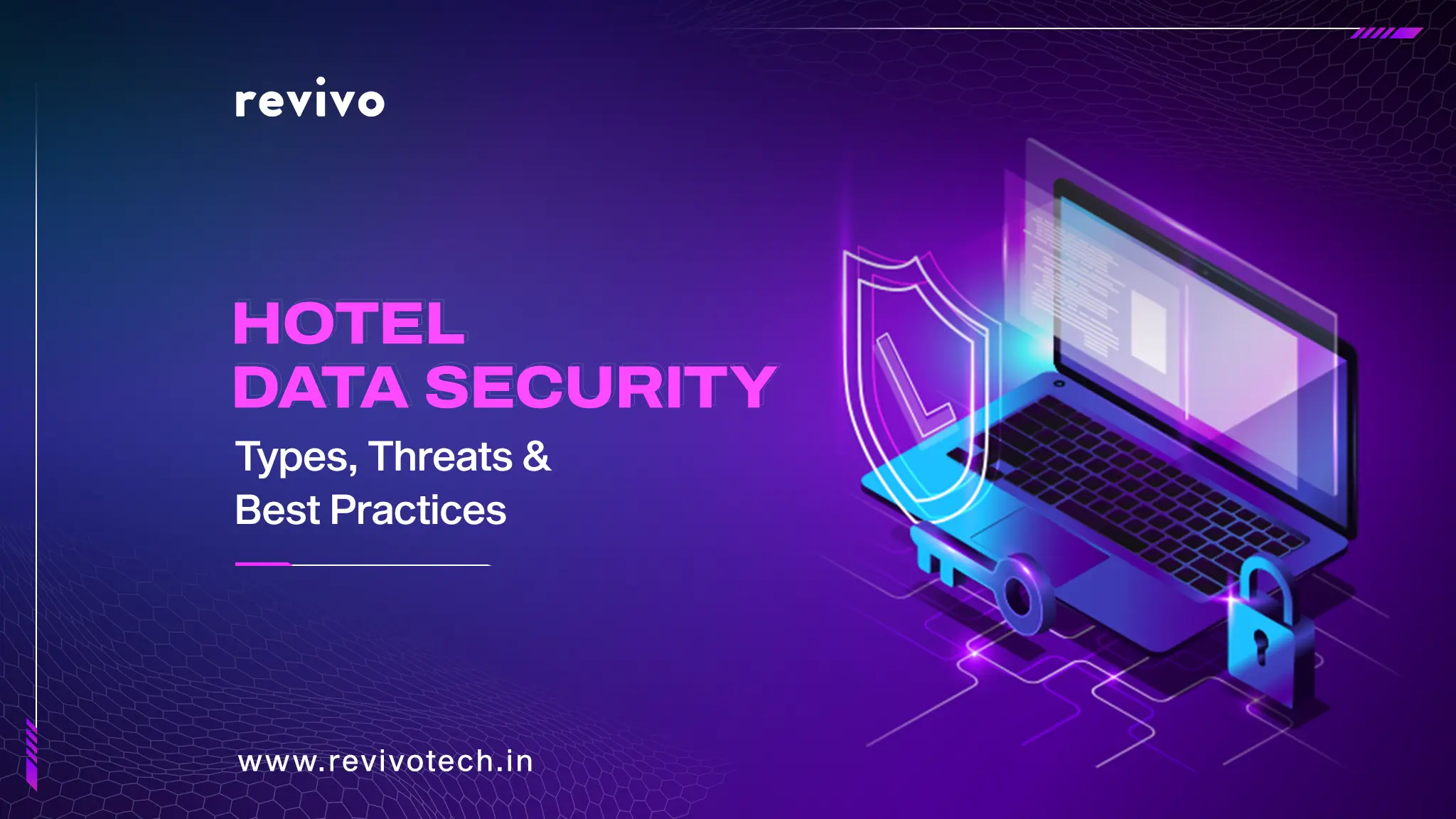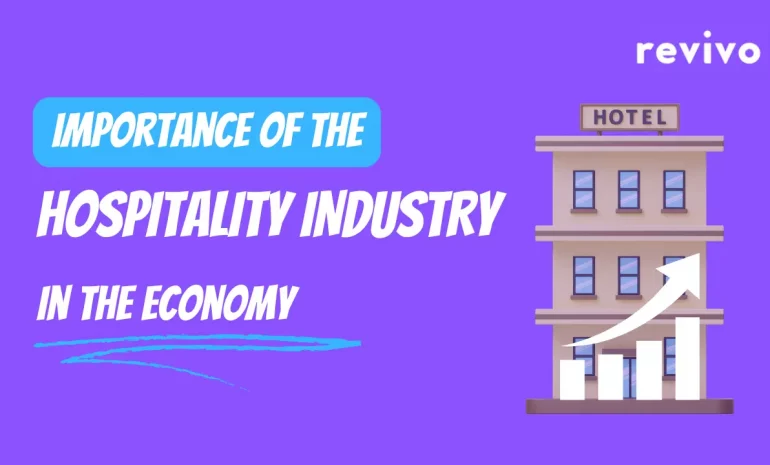In today’s data-first world, there has been a visible surge in cyber attacks specifically targeting hotel data security. This comes as an eye-opener since hotels were previously overlooked by hackers. However, with hotels becoming a haven for valuable information collected by the guests, attackers are actively threatening the Hotel Data Security system for the sole purpose of extracting guest information.
Given that guest data is collected by hotels in a huge amount, this sensitive data becomes even more vulnerable to security threats which often raises questions about privacy and associated frauds. Since the loss of such data if left unprotected can lead to credit card frauds or even identity thefts, making it a strategic pivotal for Hotel Data Security to keep guest information protected and secured.
Types of Guest Data Collected by Hotels
Hotels are more than just places to stay and relax; they are information vaults that collect a great amount of data to curate personalised experiences and manage hotel operations.
Amidst the vast amount of collected hotel guest data, personal information holds utmost importance as it serves as the basis for making reservations. This primarily includes information such as name, address, phone number, and email details.
From filling in the personal information, guests are also mandated to enter in the payment details which might include adding credit or debit card details for making the payment for the room as well as other services.
This underscores the need for hotels to ensure that the hotel billing software is safe against frauds and unauthorised breeches.
In addition, hotels also store guest data related to past reservations in order to create a more personalised guest experience based on each guest’s preferences.
Hotels also track guest preferences like room type, bed size, amenities, floor choice, etc as soon as the guest check-in. This data proves to be useful in enhancing the entire experience to elevated heights.
While this type of guest data is certainly crucial for delivering superior guest experience, it also comes with potential hotel data security issues that ought to be addressed instantly.
What are the Common Hotel Data Security Threats
The hospitality industry grapples with influx of data on a regular basis, which makes it crucial to keep Hotel Data Security confidential and safe. The first step towards robust hotel data security begins with understanding common threats.
Hacking and Malware:
There is nothing more serious than hacking attempts that significantly affect your hotel’s reputation and your guests’ faith in your services.
In tandem, the risk of breaches and hacks is one the most pressing issues for hotels, as hackers enter into the booking systems through vulnerable spots, and access all crucial information without permission.
This necessitates the need to develop a strong hotel data security system.
Easy Passwords and Open Wi-Fi Points:
Weak passwords present another opportunity for hackers to enter and attack without any constraints.
Hotels using weak passwords invite hackers into their midst by providing them with an easy-in which helps them in compromising data of guests.
At the same time, open wifi networks are not only unsecured but allow hackers to look at each guest’s online activity.
Phishing Attacks and Physical Security Gaps:
Guests can also become vulnerable to phishing attacks by being tricked with hotel offers via messages or emails that appear to be real but are intended to steal passwords.
In contrast, physical security is also equally important as physical gaps like guest’s missing information or documents showing confidential information create serious threats that can be harmful to the guests as well as the hotel.
Leveraging the Best Practices for Hotel Data Security
To avoid common hotel security threats, it’s important to undertake these Hotel Data Security steps.
Protecting Hotel Guest Data:
Hotels are bound to manage all the information collected from the guest, ranging from address to payment information.
To prevent misuse of such essential information, hotels can put encryption techniques in place to ensure that private guest data is not shared with unauthorised individuals under no circumstances.
Limiting Guest Data Access:
There is an urgent need for hotels to limit access to guest information. This can be achieved by applying the role-based access control method, which will allow hotels to limit data access as per job roles.
This means that front-desk staff will no longer be able to view financial records which in return will keep the financial information protected.
Conducting Regular Audits:
Given that technology is an ever-evolving field, there is no surprise that so is cyber crime.
Conducting audits can help identify potential weaknesses in the Hotel Data Security system whilst continuous security updates can protect the system from newly discovered attacks and threats.
Procuring Guest Consent:
Being transparent is the cornerstone of trust, which applies that hotels need to obtain explicit consent from guests on behalf of data collection.
For the same, hotels must explain the simple and clear terms about how the data will be used and for which purposes.
This also means that hotels need to seek guest consent before sharing their confidential information with third-party vendors for additional services.
Robust Hotel Staff Training:
Potential errors made by the staff are possibly the biggest contributor to data breaches. Having said that, training the hotel staff on data security practices becomes pivotal.
Thus, a data breach is less likely to happen when training programs are robust and the guest data is handled responsibly.
Conclusion
In the hospitality industry, keeping guest information safe transcends beyond following rules and capitalises on building trust and making guests happy. All hotels that make security a top priority have higher chances of succeeding in the long run.
At Revivo, we understand the significance of data security and subsequently provide fully secured and customised hotel management services for hoteliers.
FAQs
1. What is data security in a hotel?
Data security in a hotel basically involves safeguarding the hotel guest data from possible cyber and security attacks that could threaten a guest’s privacy and subsequently affect the hotel’s reputation.
2. Why do hotels need data protection?
Hotels need data protection protocols for not just protecting their geuts’s information but to also safeguard their own reputation in the market especially since hotels have become a favourite spot for possible hackers.
3. What type of data do hotels collect?
Hotels are treasure troves of information, which encompasses personal details, payment information, booking history, and stay preferences, amongst other data collected.
4. What are the most common hotel data security threats?
Amidst the numerous data security threats, the most common one’s plaguing the hotel industry includes, hacking, phishing attempts, physical security gaps, and malware attacks.
5. What are 5 ways to secure data?
The 5 ways to secure data spans from protecting hotel guest data, limiting access to guest data, conducting regular audits, undertaking hotel staff training, and procuring guest consent.



